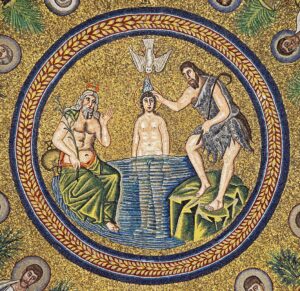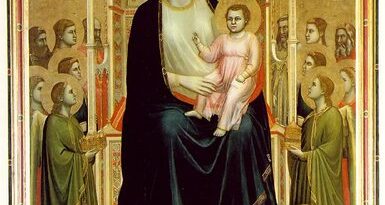Feast of the Baptism of the Lord
Massimo Palombella

In ancient times, three manifestations of Jesus were united in the Solemnity of Epiphany: the adoration by the Magi (Mt 2:1-12), the Baptism of Jesus in the Jordan (Mt 3:13-17) and the first miracle that took place in Cana of Galilee (Jn 2:1-11).
In the current Liturgy, today’s Feast is not theologically distinct from Epiphany, except for different emphases. In the Roman and Ambrosian Rites, the three aforementioned manifestations of Jesus are separated into three days: Epiphany and the following two Sundays.
With this Sunday we enter a segment of Ordinary Time that will lead us to Ash Wednesday, for the Roman Rite, or to the first Sunday of Lent, for the Ambrosian Rite. This segment is characterised by a strong Christological emphasis, in the sense that it focuses specifically on the identity of Jesus.
It is not easy and obvious to be able to read, to understand the signs in our daily lives. We struggle to read the metacommunications of our wife, our husband, our children, our friends, the very persons we sincerely love. And yet, I believe that we are all called to enter, or remain, on that not easy path that slowly refines our humanity, making us increasingly capable of being attentive to signs in order to grasp the presence of God, discreet, silent, but very real.
A God, the Christian one, who having made himself flesh and having revealed himself in history, awaits us in reality, in everyday life, in the disarming ordinariness, in the truth we must tell ourselves and do, in the necessary separations we must make in order to become the persons we can and are called to be.
The Gradual of today’s Celebration is taken from Psalm 44 (Ps 44:8) with the following text:
“Dilexisti iustitiam, et odisti iniquitatem,
propterea unxit te Deus, Deus tuus, oleo laetitiae.”
(You have loved justice and hated iniquity,
therefore God, your God, has anointed you with the oil of gladness).
The attached music, in Gregorian Chant, is taken from the Graduale Triplex published in Solesmes in 1979. The interpretation is by the Monks of Solesmes.
A blessed Sunday and heartfelt greetings.


